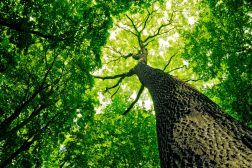Definition
noun, plural: seedlings
(botany) A young sporophyte that grows from a seed; a (recent) sprout
Supplement
A seedling is a young sporophyte especially one that develops from an embryo from a seed. Seedlings emerge from seed that germinates. Germination is the process that leads to the sprouting of a seedling from a seed of a spermatophyte, i.e. gymnosperm or angiosperm. There are various factors that lead to the sprouting of the seedling. Some of the main factors include temperature, water, and oxygen. Depending on the type of seed, the optimal temperature for seed germination may vary. Seeds have a range of temperature wherein they will germinate. Many seeds prefer temperatures slightly above 60-75 F (16-24 C). Other seeds germinate at slightly above freezing temperature. Water is essential for seed germination, especially for dry seeds. The presence of water would stimulate the seed to resume growth and cell metabolism. Oxygen is necessary in the development of the seedling since it is used in aerobic respiration, which is an important source of metabolic energy. Without the appropriate external and internal cues, the seed would not develop into a seedling and stay in dormancy. Other seeds though would still fail to germinate due to the lack of an embryo. Seeds without embryo are called sterile seeds. Seeds with a growing embryo would produce seedlings following germination. A typical seedling has the following fundamental parts: (1) radicle, (2) hypocotyl, and (3) cotyledons.
See also:
Dictionary > Seedling


